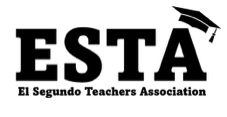




What rights does a teacher have when it comes to meeting with an administrator?
◦Ask what the meeting’s purpose is before attending
◦Be represented in meetings that might lead to discipline
◦Request unusual directives be put in writing before complying
◦Give no explanations until after consulting with a ESTA Rep.
◦You may refuse to submit a written statement until after consulting with ESTA
◦Remain silent and consult a lawyer if accused of conduct that could lead to criminal prosecution
Weingarten Rights
Employee's Right to Union Representation
The right of employees to have union representation at meetings with supervisors that could lead to discipline was announced by the U.S. Supreme Court in a 1975 case (NLRB vs. Weingarten, Inc. 420 U.S. 251, 88 LRRM 2689). These rights have become known as the Weingarten rights.
Employees have Weingarten rights during investigatory interviews and other meetings with supervisors that could lead to discipline. An investigatory interview occurs when a supervisor questions an employee to obtain information which could be used as a basis for discipline or asks an employee to defend his or her conduct.
"If an employee has a reasonable belief that discipline or other adverse consequences may result from what he or she says, the employee has the right to request union representation.
When the employee makes the request for a union representative to be present management has three options:
1 He/she can stop questioning until the representative arrives,
2. She/He can call off the interview or,
3. She/He can tell the employee that it will call off the interview unless the employee voluntarily gives up his/her rights to union representation (an option the employee should always refuse)."
Employers will often assert that the only role of a union representative in an investigatory interview is to observe the discussion. The Supreme Court, however, clearly acknowledges a representative's right to assist and counsel workers during the interview.
The Supreme Court has also ruled that before an investigatory interview management must inform the union representative of the subject of the interrogation. The representative must also be allowed to speak privately with the employee before the interview and at any time during the interview. During the questioning, the representative can interrupt to clarify a question or to object to confusing or intimidating tactics.
While the interview is in progress the representative can not tell the employee what to say but he or she may advise them on how to answer a question or to not answer the question. At the end of the interview the union representative can add information to support the employee's case.
IMPORTANT RIGHTS TO KNOW
Use District
Technology Wisely:
Technology has the power to transform and enhance the work you do as education professionals. Be aware of the potential hazards, however, and keep these tips in mind when using school computers:
Acceptable Use Policy
Check if your employer has an Acceptable Use Policy for using technology. Your district or community college likely has separate policies for students and employees. The Acceptable Use Policy should define where, when, and how long employees may use computers and network services.
Be Prudent About Content
Don’t access, accept, or transmit anything that can be interpreted as obscene or pornographic. Review the Acceptable Use Policy about any other potentially objectionable material.
Non-Commercial Use
School & college networks usually prohibit using their network and computers for commercial purposes, such as promoting a personal business.
Protect Student Information
All confidential student data such as Individualized Education Programs (IEPs), grades, and all other private data must be secured, even on a computer. Establish a password that will limit access to computers you use for confidential material, and do not share your password with others (ask your technology staff for assistance if needed).
Your Public Employer Owns Your Email
Do not send anything you wouldn’t want read by your employer, or possibly the public. The school district or college owns and controls the email system. Even deleted email can be retrieved and used in lawsuits. Do not send any confidential or private email at work.
Monitoring Student Use
You might be held responsible for inappropriate student use of technology. Because it is impossible to supervise student use at all times, check if your district has a “reasonable supervision” standar
